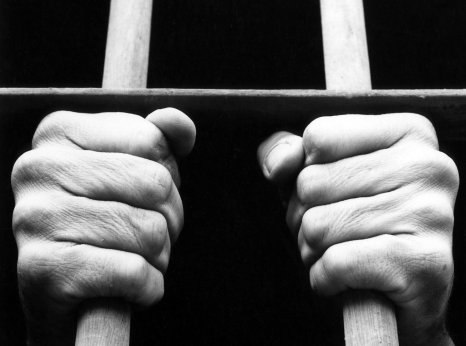Iran: Risk Of Protest-Related Executions After Unfair Trials

The trials of individuals for capital offences in connection with the “Woman Life Freedom” uprising have borne no resemblance to meaningful judicial proceedings. Authorities have barred individuals from accessing any lawyers during the investigation phase and have also barred independently appointed lawyers from attending trial hearings and accessing their clients’ casefiles. The authorities have also fast-tracked capital cases, with courts using torture-tainted “confessions” to issue convictions.
Amnesty International has documented the torture and other ill-treatment of five out of the eight individuals under sentence of death to extract forced “confessions”. According to informed sources, during interrogations, authorities subjected Reza (Gholamreza) Rasaei to electric shocks, suffocation by placing a plastic bag over his head, prolonged suspension, severe beatings and sexual violence to compel his forced “confessions”. In October 2023, a Kermanshah province criminal court convicted him of “murder” and sentenced him to death, admitting torture-tainted forced “confessions” as “evidence”. In January 2024, the Supreme Court rejected his request for judicial review while disregarding exculpatory evidence, including on the flawed criminal investigations and the omission of forensic and other evidence, and key witness testimonies. He has now exhausted all available legal avenues to halt his execution and his death sentence has been sent for implementation. In April 2023, Iran’s judiciary announced that a Revolutionary Court in Ahvaz, Khuzestan province, sentenced Mojahed (Abbas) Kourkouri to death for “enmity against God”, “corruption on earth” and “armed rebellion against the state”. His grossly unfair trial was marred by torture-tainted “confessions” obtained while he was subjected to enforced disappearance.
Of the eight individuals under sentence of death, Toomaj Salehi was sentenced to death in April 2024 solely in relation to his participation in the “Woman Life Freedom” uprising and social media posts where he condemned the Iranian authorities’ oppression, executions and use of torture, and called for human rights and freedom for people in Iran. Mahmoud Mehrabi, who was arrested in February 2023 and released on bail on 16 March 2023 before being re-arrested several hours later, was sentenced to death for “corruption on earth” by Branch 5 of the Revolutionary Court of Esfahan according to a post on X by his lawyer on 5 May 2024. Two days later, on 7 May 2024, the judiciary’s Mizan News Agency announced that his conviction and death sentence were connected to the “Woman Life Freedom” uprising. An informed source told Amnesty International that Mahmoud Mehrabi had expressed support for the uprising in his social media posts and had also faced reprisals from the authorities for publicly criticizing corruption by local officials. In November 2022, a Revolutionary Court in Tehran convicted Manouchehr Mehman Navaz of “enmity against God” and sentenced him to death on allegations of setting fire to a state building during protests “with intent to confront the Islamic state”, in violation of international law which prohibits the death penalty for offences that do not involve intentional killing. The court issued his conviction and death sentence just two weeks after his grossly unfair trial started on 29 October 2022.
Amnesty International has also obtained the names of at least five others – Kamran Soltani, Mohammad FarjI, Pouria Javaheri, Raouf Sheikh Maroufi and Reza Arabpour – who are in detention and are accused of, charged with or indicted on capital offences. The organization believes the number of individuals at similar risk is higher.
To date, the authorities have arbitrarily executed at least nine people in connection with the uprising after grossly unfair trials marred by torture allegations. Mohammad Ghobadlou, a 23-year-old protester with a mental disability, was unexpectedly and unlawfully executed on 23 January 2024, even though in July 2023 Branch One of the Supreme Court that had quashed his death sentence and ordered a retrial – a retrial that never took place after the Head of the Judiciary, Gholamhossein Mohseni Eje’I, intervened.
In the aftermath of the “Woman Life Freedom” uprising, the Iranian authorities have intensified their use of the death penalty to instil fear among the population and tighten their grip on power. In 2023, authorities carried out at least 853 executions, marking a 48% increase from 2022. In 2023, the authorities carried out seven protest-related executions: Mohammad Mehdi Karami and Seyed Mohammad Hosseini in January; Majid Kazemi, Saleh Mirhashemi and Saeed Yaghoubi in May; Milad Zohrevand in November, all in relation to the 2022 uprising; and Kamran Rezaei in November in relation to the November 2019 nationwide protests. The use of the death penalty has disproportionately impacted Iran’s oppressed Baluchi ethnic minority, who constitute about 5% of Iran’s population, yet accounted for 20% of all executions in 2023. In 2024, the Iranian authorities have continued their execution spree, including against ethnic minorities and dissidents, and carried out at least 250 executions until 20 May 2024, according to the Abdorrahman Boroumand Centre.